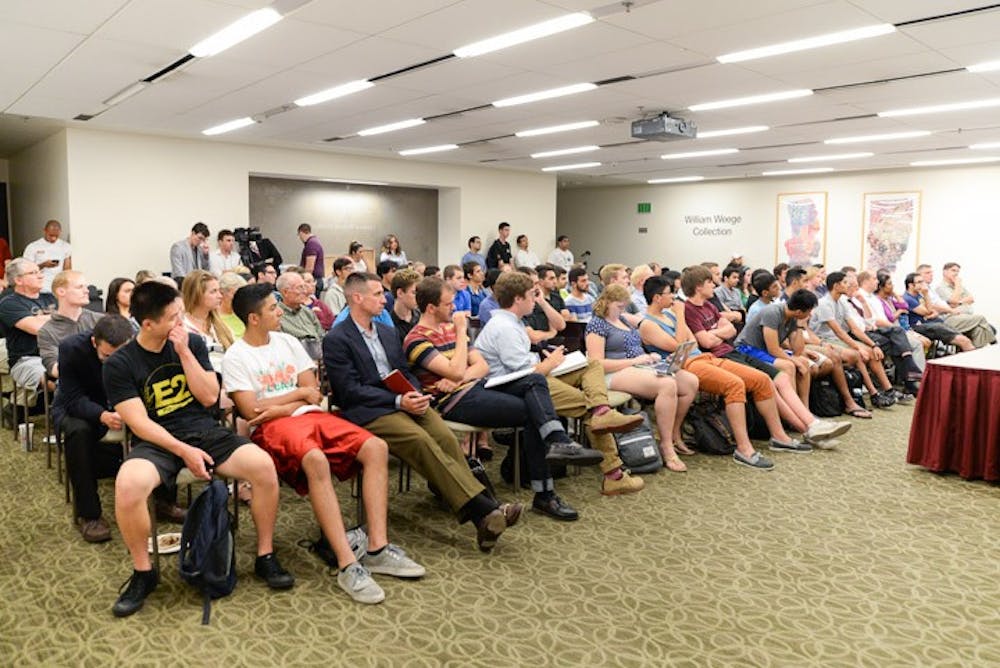Is the U.S. responsible for the rise of the self proclaimed Islamic State? That was the question ASU’s Alexander Hamilton Society and students tried to tackle Monday.
The national collegic organization that ASU political science sophomore Shay Khatari introduced to campus in February focuses on providing a forum for respectful political discussion. The club places a large value on education.
“We saw a vacuum of debate — a void of debate on campus and that was how it was created,” Khatari said.
So they took that idea and developed a chapter of the society at ASU.
Building up a foundation to establish themselves upon, Khatari and the ASU chapter of AHS launched their first debate forum discussing whether or not the United States was to blame for the rise of ISIS.
It was that night that retired U.S. Army Colonel Peter Mansoor, Chief of Staff to General Petraeus during the Surge, discussed the issue with ASU professor and to-be author Daniel Rothenberg.
The idea was not to have two polarized sides, but two have two opposing viewpoints building upon each other.
“The question ‘Is the U.S. responsible for the rise of ISIS?' is inherently the problem. Because it implies that it’s a yes or no answer,” Rothenberg said.
The two focused less on certainties and more on providing the group of students, professors and community leaders in the crowd with different perspectives on the issue.
While both agreed that the U.S. had a hand in the issue, they offers different insights based on their own personal experiences.
Mansoor, for example, placed a heavy focus on military failures and how the U.S. established itself in Iraq in a post 9/11 world. Based on his years of military experience and role in the foreign conflict, he held that the military figures approached the idea wrong.
"We would like to stay out, we would like to contain the mess, but the Islamic State right now cannot be contained,” Mansoor said.
Rothenberg focused less on a larger scope, focusing on civilian casualties and individual stories, also emphasizing that conflict in a military capacity should be avoided.
It was these specific perspectives that Khatari felt needed to be exposed to ASU community members, taking a complex issues some may not completely understand and delve into it in intelligent way.
“When people first hear the issue, most would think ‘Why would you think the United States has anything to do with ISIS?’ … If you look into it a bit, it becomes a valid question that needs to be answered,” economics freshman Anirudh Koka said.
Reach the reporter at megan.janetsky@asu.edu or follow @meganjanetsky on Twitter.
Like The State Press on Facebook and follow @statepress on Twitter.




